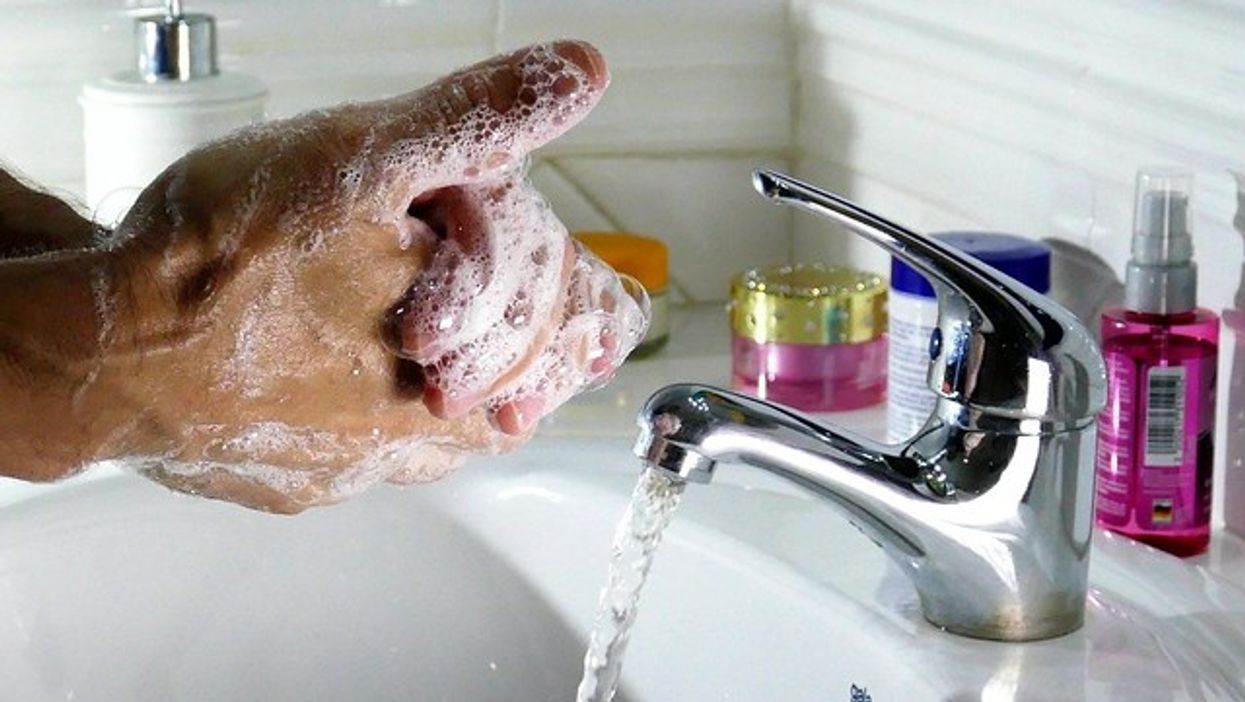
Reprinted with permission from DCReport
Even washing your hands has its drawbacks. A common preservative in soaps and household cleaners is putting thousands of people at risk of developing painful, debilitating allergies.
The preservative, methylisothiazolinone, or MI, inhibits the growth of bacteria, yeast and molds. It is made by Dow. It's widely used in our country … a 2016 study found that MI is in 47 percent of household cleaners and 29 percent of soaps. It's restricted in Europe.
"Many hand cleansers still contain this preservative," said Andrew Scheman, a professor of clinical dermatology at Northwestern University's Feinberg School of Medicine. "Whether or not this translates into new allergies will become clear over time. However, we will likely see an increase in reactions in persons already allergic to MI if they are not extremely careful about what they use when washing their hands."
People develop allergies over time with exposure to methylisothiazolinone, or MI, and symptoms include a rash, swelling and flaky skin.
The Consumer Product Information Database lists 1,535 brands that contain MI including Ivory Body Wash and Lysol hand soap. MI, which is also part of preservatives such as Kathon CG, is not always listed on labels. People develop allergies over time with exposure to MI, and symptoms include a rash, swelling and flaky skin.
Soap is regulated as a cosmetic by the Food & Drug Administration or as a consumer product by the Consumer Product Safety Commission. Some soaps are regulated as drugs by the FDA which gives the agency more enforcement powers.
The FDA's authority over cosmetics is so weak that it couldn't force Claire's in 2019 to stop selling makeup that contained asbestos. The retailer, which markets to teenage girls, did voluntarily remove the products.
The Consumer Product Safety Commission, led by acting chairman Robert Adler, doesn't have specific requirements for soap unless the soap is primarily used by children 12 or younger.
Swollen Hands
Dorie Babin told federal regulators in 2018 that she suffered with swollen, infected hands for a decade before a specialist did allergy testing and found she was allergic to MI.
"It did spread to my face, neck and chest," Babin said. "Swollen eyes so bad I couldn't see. Rash and hives were covering my body."
Dana Todd, who moderates a support group for people allergic to MI and similar preservatives, was hospitalized after an allergic reaction to a preservative similar to MI.
"Some of the episodes were absolutely crippling; I couldn't walk," Todd said. "Twice I thought I was having a heart attack, once from a Febreze-soaked couch where I was inhaling the stuff."
5 Million Could Be Affected
A 2018 study estimated that 1.5 percent of the general population is allergic to MI or a similar preservative. This would translate into almost 5 million people in our country. European researchers found MI and similar preservatives were the most common preservatives that caused contact dermatitis, an allergic skin rash.
"I wouldn't be surprised if we see a spike in sensitization with people confined and cleaning like maniacs," Todd said.
In Europe, MI is allowed in concentrations of 15 parts per million in products that can be rinsed off like shampoo. The United States' recommended standard is 100 parts per million, and the preservative is also allowed in products that are left on like lotions. A combination of MI and a similar chemical can be used at 15 parts per million for products that can be rinsed off and half that for products that are left on.
Last Survey in 1975
The FDA proposed surveying people about allergies to cosmetics, but a FDA spokeswoman would not say if the survey had been done. The last public survey about reactions to cosmetics was in 1975.
"This project is still ongoing, and as a result, we are unable to provide any further information at this time," said FDA spokeswoman Monique Richards.
The Personal Care Products Council, a trade group for the cosmetics industry, pushed to change questions in the survey that asked what ingredients in cosmetics, including MI, triggered allergies.
"We caution that results not be over interpreted," said Thomas Myers, the organization's general counsel.
The Personal Care Products Council spent about $1.5 million on federal lobbying in 2019. CEO Lezlee Westine, a former aide to President George W. Bush, was paid about $1.2 million in 2018.
The council's lobbyists included Hazen Marshall, the former policy director for Senate Majority Leader Mitch McConnell (R-Ky.), and Monica Popp, the former chief of staff for Sen. John Cornyn (R-Texas.)








